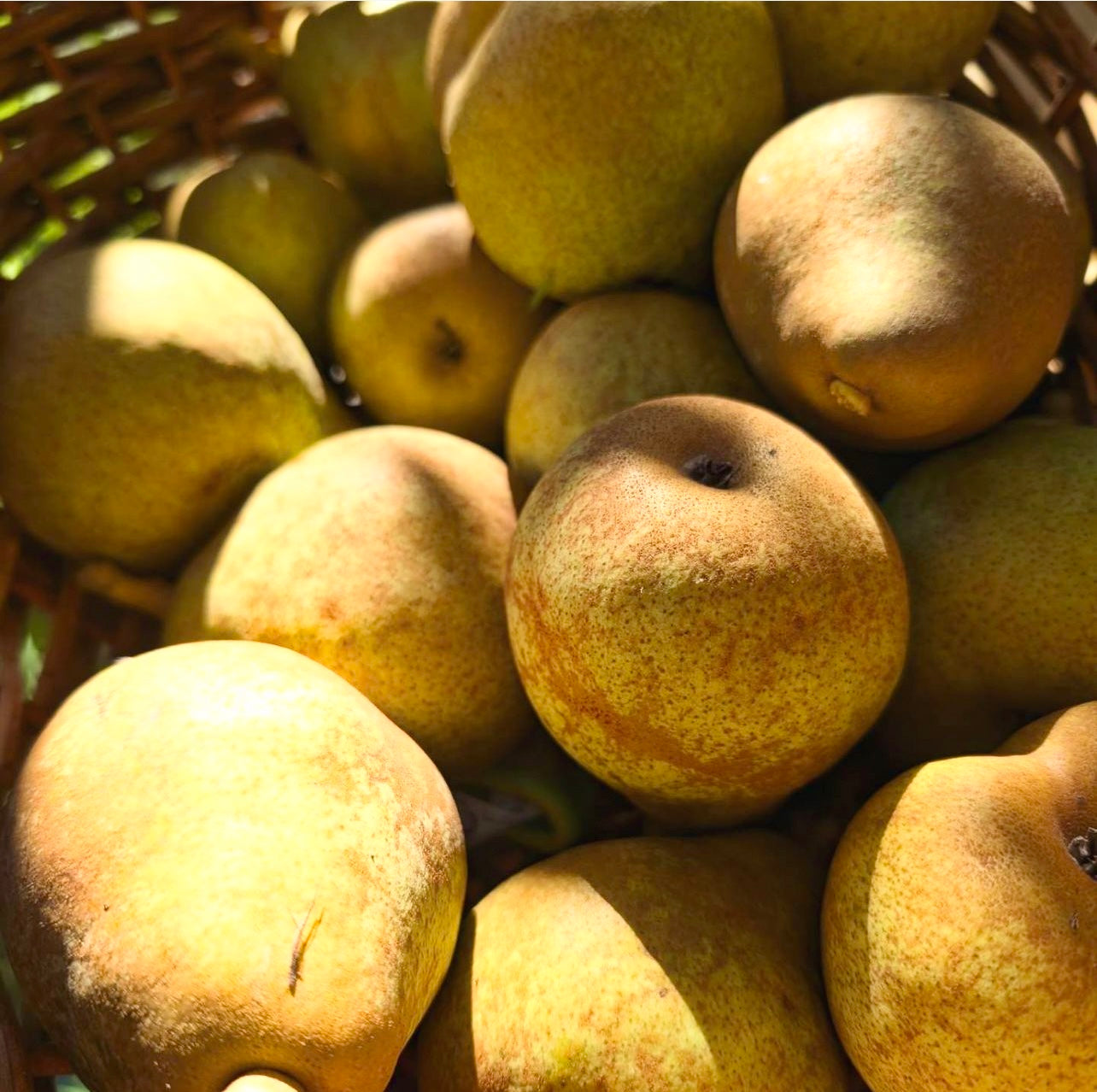Anjou pear
Anjou pear
Couldn't load pickup availability
Why We Grow It
Why We Grow It
Anjou Pear trees are an excellent addition to food forests, providing nutritious fruit while supporting pollinators and contributing to biodiversity. Their ability to grow in diverse soils and climates makes them a resilient choice for permaculture systems. The fruit’s long storage life ensures food security, while the tree’s low-maintenance nature supports sustainable farming practices. With their beauty, productivity, and ecological value, Anjou Pears are a vital component of integrated landscapes and temperate food systems.
How the Plant Grows
How the Plant Grows
Anjou Pear trees grow upright with a rounded crown, producing lush green leaves throughout the growing season. In spring, they are covered with fragrant white blossoms, followed by small green fruits that mature into large, sweet pears by late summer to early fall. The tree grows steadily, requiring minimal pruning to maintain shape and encourage fruiting.
Plant Size
Plant Size
Size at Maturity- Understory. Grows to 10-20 feet tall with a spread of 10-15 feet.
Current Size- Regular 1'-2' Grafted Whip
Additional Info
Additional Info
Anjou pears, originally from Europe, have become a favorite among temperate fruit growers for their rich, buttery texture and mild sweetness. These pears are a staple in home orchards and commercial production, valued for their long storage life and versatility in cooking. In food forests and agroforestry systems, Anjou Pear trees support pollinators with their early spring blooms and provide high-yield harvests that benefit humans and wildlife. The tree’s tolerance for cold climates and adaptability to various soils make it a reliable choice for diverse landscapes.
The Anjou Pear is a cold-hardy, versatile fruit tree celebrated for its sweet, juicy pears that are perfect for fresh eating, baking, or preserves. This productive and adaptable tree thrives in temperate climates, making it an excellent choice for food forests, permaculture designs, and homesteads. Its beautiful spring blossoms attract pollinators, while its fruit provides a valuable harvest for both humans and wildlife.
Share

Plant Highlights
-

Water
Moderate; requires consistent moisture during establishment and fruiting
-

Pollination
Requires cross-pollination; plant with another pear variety for optimal fruit production
-

Soil
Thrives in well-drained loamy soils, tolerating a range of soil types with a slightly acidic to neutral pH (6.0-7.0)
-

Years to Bear
Begins producing fruit in 4-7 years after planting
-

Hardiness
Zone 4, tolerating temperatures as low as -35°C
-

Solar
Prefers full sun, though it can tolerate partial shade with reduced yields
Subscribe to our emails
Lots of Free Growing Info. Be the first to know about new plants and exclusive discounts.







